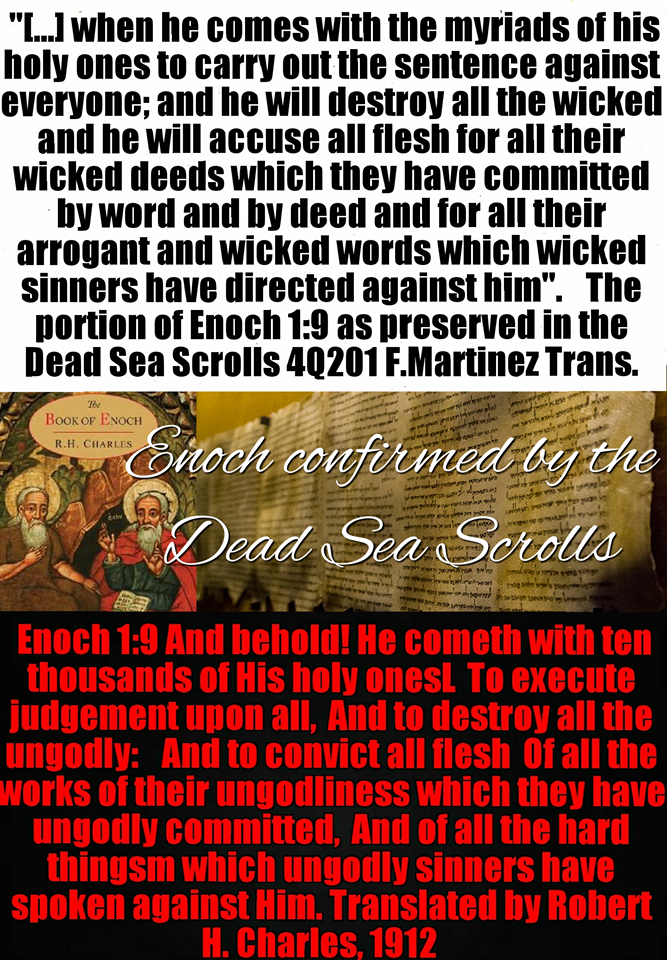All the books were burnt that were in the temple in Jerusalem. They were rewritten by Esdras and his forty scribes...but some they withheld to be revealed in the last days,
Enoch's writings were not only kept by the nation of Israel but other nations around had their own copies, and the Israelites who were in Ethiopia/Abyssinia before even the Babylonian invasion had their own copy of Enoch.
As to the Book of Jasher -the real one, not pseudo ones [
Book of Jasher Bible - SpeedBible by johnhurt.com], it is indeed history, and I believe it was written by Moses, who had copies of the writings of the patriarchs, and he also enlarged upon his own history in that writing, and like the Pentetueh, Joshua finished the end of it, writing the rest of the story after Moses' death up til they went into Canaan..
After that, the book of Joshua is history, then Judges, the two Samuels, Ruth, 1,2 Chronicles, 1,2 Kings, and Esra, Nehemiah, Maccabees, and so on.
Even the Book of Acts is history.
The book of Jasher has not one single thing in it that contradicts anything in the Torah, the histories, or the writings, but it does make many things clear that are not clear if you do not have that history. Miriam the prophet, Abel the prophet, why Moses supposed the Israelites would have known that he was to be their deliverer (because of Miriam's prophesy), and many, many other things that make even history of the nations of the time Israel was in Egypt (210 years) known and placed . Little nuggets like "how Naples got its name", and other such. And even how Moses got an Ethiopian (Cushite) wife, and why his children were so young they sat upon a camel with his Midianite wife, Zephorah, when he was going to Egypt as deliverer and was met by Aaron; and even why Aaron, as a Levite, had the freedom to depart Egypt at will.
It also tells the truth about Moses' rod, which was the true Sceptre God gave Adam to rule earth with...and how it ended up in Reuel's garden.
It also tells who the Pharoah was at the Exodus -a little dwarf with a beard to his feet, who was dubbed "Ahud/short" in name, by the Egyptians, and that he had only reigned 4 years and was removed from Egypt and taken to Ninevah -a province ruled by Egypt, when all his soldiers were drowned and Egypt was totally ruined.
It also tells that he was the Pharoah who with whom God had a controversy to settle with the all the Pharoahs of Egypt, after that, until the time of Ezekiel( 29:3), for he is the one who said "my river is my own and I have made it for myself", denying YHWH, whom he did not believe in when Moses told him to let YHWH's people go.
God settles controversies, even centuries or millenniums later, unless those in the same office as th eoriginal offender repents and confesses the sins of the fathers, and returns to God. -and he had made a "river", indeed, because satellite images, I think it is, prove there was a "canal" exactly where the Suez canal was later made.
God dried it up.
There is so much history in Jasher that corroborates the Bible that it is really a very good companion to what we do have, so as to understand what has been lost to our understanding, by it's not being available.


